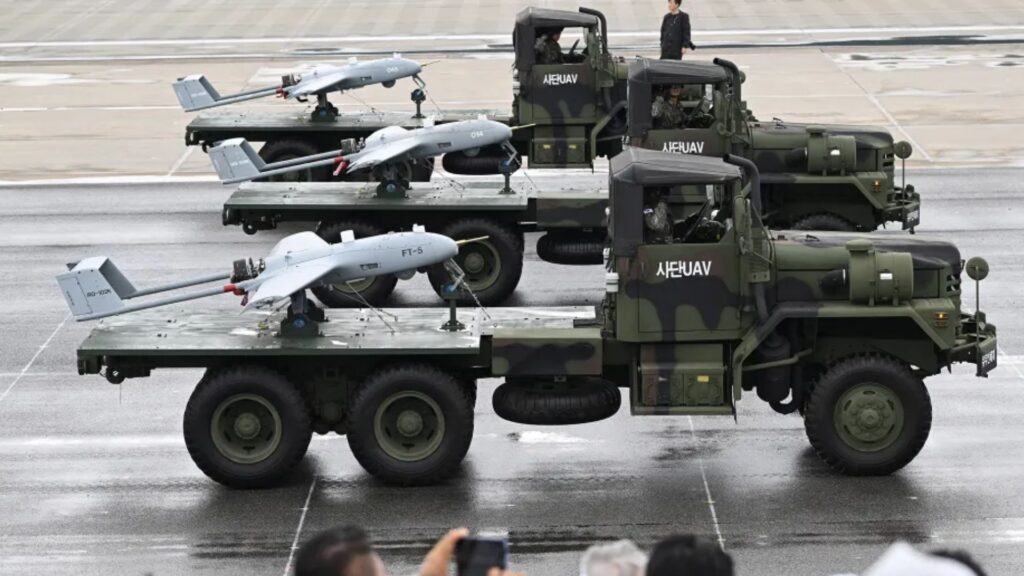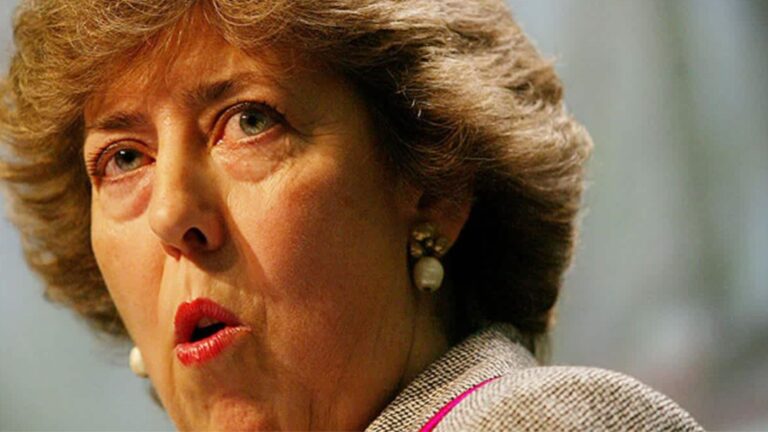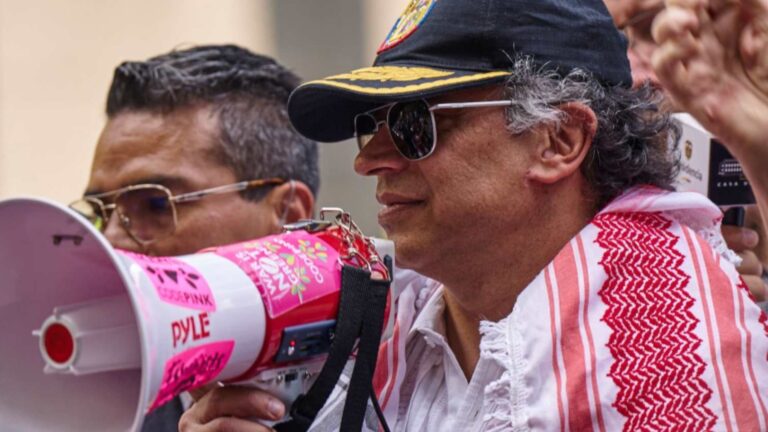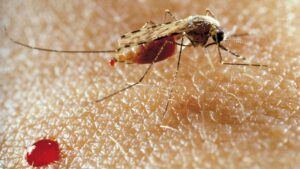
North Korean leader Kim Jong Un has declared artificial intelligence and drone development a “top priority” for modernizing the country’s armed forces, state media announced Friday following demonstration tests of new military unmanned aerial vehicles. Kim supervised the testing at North Korea’s Unmanned Aeronautical Technology Complex, expressing “great satisfaction” with the performance of the Kumsong-series tactical attack drones and strategic reconnaissance vehicles (Yonhap News).
Military Modernization Push
Kim emphasized that advancing AI capabilities and improving operational effectiveness of unmanned weapons systems “should be the top priority in modernizing the armed forces,” according to state media reports. The North Korean leader called for “primary efforts to rapidly develop the newly-introduced artificial intelligence technology and expand and strengthen the serial production capacity.” During Thursday’s demonstrations, Kim was photographed alongside an aircraft bearing remarkable resemblance to the U.S. military’s RQ-4 Global Hawk drone manufactured by Northrop Grumman.
The testing featured both strategic and tactical reconnaissance drones, as well as multipurpose unmanned aerial vehicles developed by research institutes under the Unmanned Aeronautical Technology Complex. Photos released by North Korean media showed what appeared to be suicide attack drones striking mock targets with precision, highlighting the regime’s focus on developing lethal autonomous capabilities (Al Jazeera).
The demonstration underscored North Korea’s ambition to integrate cutting-edge AI technology into its defense infrastructure, potentially transforming its military doctrine around unmanned systems. State media emphasized that these projects represent a coordinated effort across multiple research facilities, suggesting substantial resource allocation to drone and AI development programs.
Technology Transfer Concerns
The timing of North Korea’s AI and drone emphasis coincides with deepening military cooperation with Russia, which has provided Pyongyang with advanced technologies in exchange for troops and weapons supporting Moscow’s war in Ukraine. Ukraine’s intelligence chief Kyrylo Budanov revealed in June that Russia was sharing Shahed drone production technology with North Korea, warning this would “bring changes in the military balance in the region between North Korea and South Korea.”
Intelligence reports indicate that North Korean forces deployed to Russia’s Kursk region have gained direct combat experience with drone warfare, returning home with expertise in low-cost production and swarm tactics. This battlefield experience could significantly accelerate North Korea’s indigenous drone development capabilities, providing practical knowledge that complements theoretical research (RBC Ukraine).
The technology transfer arrangement represents a concerning development for regional security, as it potentially provides North Korea with proven combat-tested drone technologies that could be adapted for use against South Korean and U.S. forces. Experts worry that combining Russian drone technology with North Korea’s nuclear capabilities could create new asymmetric threats on the Korean Peninsula.
Strategic Context
The drone demonstrations come just weeks before the 80th anniversary of North Korea’s ruling Workers’ Party on October 10, which analysts suggest may feature major celebrations showcasing the regime’s military achievements. Yang Uk, a research fellow at Seoul’s Asan Institute for Policy Studies, told Stars and Stripes that North Korea likely wanted to “make it a political achievement” ahead of the milestone anniversary.
Despite the visual similarities to advanced U.S. systems, experts believe North Korea’s drone capabilities remain limited compared to their American counterparts. Yang noted that if Pyongyang had achieved significant AI breakthroughs, “they would publicize it all over the news.” South Korea’s Ministry of Unification confirmed Kim has visited drone-related facilities four times, indicating sustained focus on unmanned aerial vehicle development (Asia Pacific Foundation).
The South Korean military continues monitoring North Korea’s expanding drone program as the peninsula enters what analysts describe as a new phase of unmanned warfare competition. This development reflects broader global trends toward AI-enabled military systems, with North Korea seeking to leverage these technologies to offset conventional military disadvantages against technologically superior adversaries.











